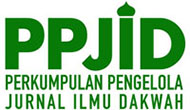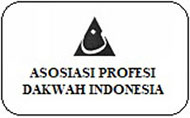The Potential Identification of Pulau Belimbing Village for the Development of Halal Tourism in Kampar Regency
Abstract
Halal tourism is currently an interesting trend to study. The population of Indonesia, amounting to 273.5 people, of which 87.2 percent are Muslim. This is a huge opportunity for the development of halal tourism. Pulau Belimbing Village is one of the villages in Kampar Regency which has tourist destinations that are synonymous with Islamic customs and religions which can be a site to promote Islamic culture. This research is a qualitative descriptive study that describes the existing conditions of the research object. From the results of this study, it was found that Pulau Belimbing Village has the potential to develop into one of the halal tourism destinations in Kampar Regency and Riau Province. Intense support from the local government and various interested parties is needed to realize this halal tourism.
Keywords
Full Text:
PDFReferences
Afnarius, S., Akbar, F., & Yuliani, F. (2020). Developing web-based and mobile-based GIS for places of worship information to support halal tourism: A case study in Bukittinggi, Indonesia. ISPRS International Journal of Geo-Information, 9(1), 1–18. https://doi.org/10.3390/ijgi9010052
Ahmed, M. J., & Akbaba, A. (2018). The Potential of Halal Tourism in Ethiopia: Opportunities, Challenges and Prospects. International Journal of Contemporary Tourism Research, 1, 13–22. https://doi.org/10.30625/ijctr.397499
Anugrah, K. (2017). Potensi Pengembangan Wisata Halal Dalam Perspektif Dukungan Ketersediaan Restoran Halal Lokal (Non Waralaba) Di Kota Gorontalo. Jurnal Pariwisata Pesona, 2(2), 1–12. https://doi.org/10.26905/jpp.v2i2.1520
Azizah, N. (2016). Daya Tarik Wisata Budaya Di Desa Wisata Pulau Belimbing Kecamatang Kuok Kabupaten Kampar Provinsi Riau. Jurnal Online Mahasiswa, 3(2), 1–12.
Carollina, R., & Triyawan, A. (2019). Analysis of Halal Tourism Development Strategy in East Java Province. Journal of Islamic Economics and Philanthropy, 02(01), 234–250.
Cruz, A. P. S. (2013). Pariwisata Halal. Journal of Chemical Information and Modeling, 53(9), 1689–1699.
El-Gohary, H. (2020). Coronavirus and halal tourism and hospitality industry: Is it a journey to the unknown? Sustainability (Switzerland), 12(21), 1–26. https://doi.org/10.3390/su12219260
Fatkurrohman, F. (2017). Developing Yogyakarta’s Halal Tourism Potential for Strengthening Islamic Economy in Indonesia. Afkaruna: Indonesian Interdisciplinary Journal of Islamic Studies, 13(1). https://doi.org/10.18196/aiijis.2017.0065.1-16
Gilang Widagdyo, K. (2015). Analisis Pasar Pariwisata Halal Indonesia. The Journal of Tauhidinomics, 1(1), 73–80.
Hamzah, A, Angga, P, Fanny, S, Emma R, Yunandra, Edo, S, Yossie, K.D., & Pebriandi. 2020. Diversifikasi Produk Pangan Khas Desa Kuok . Taman Karya. Pekanbaru
Hermawan, E. (2019). Strategi Kementerian Pariwisata Indonesia Dalam Meningkatkan Branding Wisata Halal. Jurnal Ilmu Manajemen Dan Akuntansi, 7(2), 87–95.
Jaelani, A. (2017). Halal Tourism Industry in Indonesia: Potential and Prospects. SSRN Electronic Journal, 76237. https://doi.org/10.2139/ssrn.2899864
Junaidi, J. (2020). Halal-friendly tourism and factors influencing halal tourism. Management Science Letters, 10(8), 1755–1762. https://doi.org/10.5267/j.msl.2020.1.004
Kementerian Pariwisata dan Ekonomi Kreatif. (2020). Rencana Strategis KEMENPAREKRAF/BAPAREKRAF 2020-2024. Kemenparekraf, 1–136.
Kementerian Pariwisata. 2019. Panduan Penyelenggaraan Pariwisata Halal. Deputi
Pengembangan Industri dan Kelembagaan. Jakarta
Mastercard, & CrescentRating. (2019). Global Muslim Travel Index 2019. April, 01–63.
Muis, M. (2020). Perkembangan Peluang dan Tantangan Wisata Halal di Aceh. Jurnal Adabiya, 22(1), 41. https://doi.org/10.22373/adabiya.v22i1.7456
Palupi, M., Romadhon, R. W., & Arifan, N. (2017). The importance of optimization of Halal tourism: A study of the development of Halal tourism in Indonesia. Proceedings of the 29th International Business Information Management Association Conference - Education Excellence and Innovation Management through Vision 2020: From Regional Development Sustainability to Global Economic Growth, May, 3083–3092.
Pratiwi, S. R., Dida, S., & Sjafirah, N. A. (2018). Strategi Komunikasi dalam Membangun Awareness Wisata Halal di Kota Bandung. Jurnal Kajian Komunikasi, 6(1), 78. https://doi.org/10.24198/jkk.v6i1.12985
Rachmiatie, A., Fitria, R., Suryadi, K., & Ceha, R. (2020). Strategi Komunikasi Pariwisata Halal Studi Kasus Implementasi Halal Hotel Di Indonesia Dan Thailand. Amwaluna: Jurnal Ekonomi Dan Keuangan Syariah, 4(1), 55–74. https://doi.org/10.29313/amwaluna.v4i1.5256
Rahmiati, F., Othman, N. A., & Sunanti, M. A. P. (2019). Muslim Tourist Satisfaction of Halal Tourism in Lombok. Jurnal Syarikah : Jurnal Ekonomi Islam, 4(2), 122. https://doi.org/10.30997/jsei.v4i2.1501
Ropiah, E. S. (2018). Wisata Halal: Potensi Ekonomi Baru Industri Pariwisata Di Kabupaten Cirebon. Inklusif (Jurnal Pengkajian Penelitian Ekonomi Dan Hukum Islam), 3(2), 166. https://doi.org/10.24235/inklusif.v3i2.3392
Sayekti, N. W. (2019). Strategi Pengembangan Pariwisata Halal di Indonesia. Kajian Pusat Penelitian, Bidang Ekonomi Dan Kebijakan Publik Setjen DPR RI, 24(3), 159–172. https://jurnal.dpr.go.id/index.php/kajian/article/view/1866
Sugihamretha, I. D. G. (2020). Respon Kebijakan: Mitigasi Dampak Wabah Covid-19 Pada Sektor Pariwisata. Jurnal Perencanaan Pembangunan: The Indonesian Journal of Development Planning, 4(2), 191–206. https://doi.org/10.36574/jpp.v4i2.113
Wahyono, Z., & Razak, M. A. A. (2020). Islamic Tourism in Southeast Asia: The Concept and its Implementation. International Journal of Halal Research, 2(2), 90–105. https://doi.org/10.18517/ijhr.2.2.90-105.2020
DOI: http://dx.doi.org/10.24014/jdr.v32i1.12704
Refbacks
- There are currently no refbacks.

This work is licensed under a Creative Commons Attribution-ShareAlike 4.0 International License.
Editorial Office:
2nd Floor, Building of Faculty of Da'wah and Communication, Universitas Islam Negeri Sultan Syarif Kasim Riau. Jl. HR Soebrantas Km 15, Simpangbaru, Tampan, Pekanbaru
Email : jurnalrisalah@uin-suska.ac.id

This work is licensed under a Creative Commons Attribution-ShareAlike 4.0 International License.














